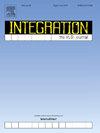考虑域变量误差的电池寿命预测
IF 2.5
3区 工程技术
Q3 COMPUTER SCIENCE, HARDWARE & ARCHITECTURE
引用次数: 0
摘要
-随着可充电电池技术的快速发展,电池寿命预测已成为当前研究的热点。数据驱动模型由于其优越的性能,在电池寿命预测领域得到了广泛的应用。这些方法通过提取早期循环电池数据的特征,构建回归模型,实现对剩余使用寿命的准确预测。然而,现实操作环境中的非理想因素不可避免地会将噪声干扰引入原始电池数据集,直接使用噪声数据进行建模会大大降低预测精度。为了解决这一问题,该研究提出了一种基于模态分解的噪声感知电池寿命预测框架。该框架采用全自适应模态分解算法对原始数据集进行分解,有效去除噪声成分,并将交互产生的高质量衍生特征作为预测模型的输入。在标准数据集上的实验验证表明,该框架具有良好的预测性能。为了进一步评估模型的稳健性,该研究还使用添加了噪声的第二个数据集进行了比较实验。结果表明,与传统方法相比,该方法具有显著的降噪效果,预测精度和稳定性均有显著提高,为电池寿命预测提供了有效的解决方案。本文章由计算机程序翻译,如有差异,请以英文原文为准。
Battery lifetime prediction considering domain-variate error
—With the rapid development of rechargeable battery technology, battery lifespan prediction has become a hot topic in current research. Data-driven models, due to their superior performance, have been widely applied in the field of battery lifespan prediction. These methods construct regression models by extracting features from early-cycle battery data to achieve accurate prediction of remaining useful life. However, non-ideal factors in real-world operating environments inevitably introduce noise interference into the raw battery datasets, and directly using noisy data for modeling significantly reduces prediction accuracy. To address this issue, the study proposes a noise-aware battery lifespan prediction framework based on modal decomposition. This framework employs a fully adaptive modal decomposition algorithm to decompose the original dataset, effectively removing noise components, and uses the high-quality derived features generated through interaction as inputs for the prediction model. Experimental validation on standard datasets demonstrates the framework's excellent predictive performance. To further evaluate the model's robustness, the study also conducted comparative experiments using a second dataset with added noise. The results show that, compared to traditional methods, the proposed approach exhibits significant noise reduction effects and notable improvements in prediction accuracy and stability, providing an effective solution for battery lifespan prediction.
求助全文
通过发布文献求助,成功后即可免费获取论文全文。
去求助
来源期刊

Integration-The Vlsi Journal
工程技术-工程:电子与电气
CiteScore
3.80
自引率
5.30%
发文量
107
审稿时长
6 months
期刊介绍:
Integration''s aim is to cover every aspect of the VLSI area, with an emphasis on cross-fertilization between various fields of science, and the design, verification, test and applications of integrated circuits and systems, as well as closely related topics in process and device technologies. Individual issues will feature peer-reviewed tutorials and articles as well as reviews of recent publications. The intended coverage of the journal can be assessed by examining the following (non-exclusive) list of topics:
Specification methods and languages; Analog/Digital Integrated Circuits and Systems; VLSI architectures; Algorithms, methods and tools for modeling, simulation, synthesis and verification of integrated circuits and systems of any complexity; Embedded systems; High-level synthesis for VLSI systems; Logic synthesis and finite automata; Testing, design-for-test and test generation algorithms; Physical design; Formal verification; Algorithms implemented in VLSI systems; Systems engineering; Heterogeneous systems.
 求助内容:
求助内容: 应助结果提醒方式:
应助结果提醒方式:


